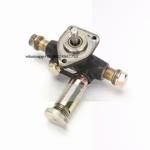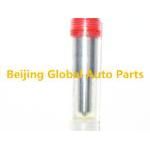Information injection-pump assembly
BOSCH
9 400 611 224
9400611224
ZEXEL
106675-4561
1066754561
KOMATSU
6152721270
6152721270
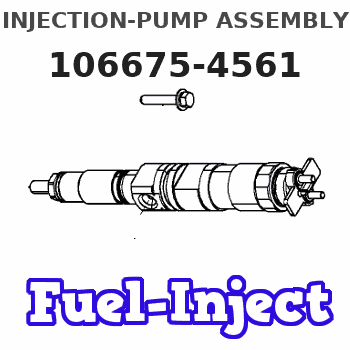
Rating:
You can express buy:
USD 3831.19
27-06-2025
27-06-2025
Hot Sale Genuine New Fuel Injection Pump 6152-72-1270 6152721270 for SA6D125E Injection Pump
Service parts 106675-4561 INJECTION-PUMP ASSEMBLY:
1.
_
5.
AUTOM. ADVANCE MECHANIS
8.
_
9.
_
11.
Nozzle and Holder
6152-12-3100
12.
Open Pre:MPa(Kqf/cm2)
27.5{280}
15.
NOZZLE SET
Include in #1:
106675-4561
as INJECTION-PUMP ASSEMBLY
Cross reference number
BOSCH
9 400 611 224
9400611224
ZEXEL
106675-4561
1066754561
KOMATSU
6152721270
6152721270
Zexel num
Bosch num
Firm num
Name
9 400 611 224
6152721270 KOMATSU
INJECTION-PUMP ASSEMBLY
SA6D125 * K 14CA PE6P,6PD PE
SA6D125 * K 14CA PE6P,6PD PE
Calibration Data:
Adjustment conditions
Test oil
1404 Test oil ISO4113 or {SAEJ967d}
1404 Test oil ISO4113 or {SAEJ967d}
Test oil temperature
degC
40
40
45
Nozzle and nozzle holder
105780-8140
Bosch type code
EF8511/9A
Nozzle
105780-0000
Bosch type code
DN12SD12T
Nozzle holder
105780-2080
Bosch type code
EF8511/9
Opening pressure
MPa
17.2
Opening pressure
kgf/cm2
175
Injection pipe
Outer diameter - inner diameter - length (mm) mm 8-3-600
Outer diameter - inner diameter - length (mm) mm 8-3-600
Overflow valve
131424-1520
Overflow valve opening pressure
kPa
157
123
191
Overflow valve opening pressure
kgf/cm2
1.6
1.25
1.95
Tester oil delivery pressure
kPa
157
157
157
Tester oil delivery pressure
kgf/cm2
1.6
1.6
1.6
Direction of rotation (viewed from drive side)
Left L
Left L
Injection timing adjustment
Direction of rotation (viewed from drive side)
Left L
Left L
Injection order
1-5-3-6-
2-4
Pre-stroke
mm
3.8
3.75
3.85
Beginning of injection position
Drive side NO.1
Drive side NO.1
Difference between angles 1
Cal 1-5 deg. 60 59.5 60.5
Cal 1-5 deg. 60 59.5 60.5
Difference between angles 2
Cal 1-3 deg. 120 119.5 120.5
Cal 1-3 deg. 120 119.5 120.5
Difference between angles 3
Cal 1-6 deg. 180 179.5 180.5
Cal 1-6 deg. 180 179.5 180.5
Difference between angles 4
Cyl.1-2 deg. 240 239.5 240.5
Cyl.1-2 deg. 240 239.5 240.5
Difference between angles 5
Cal 1-4 deg. 300 299.5 300.5
Cal 1-4 deg. 300 299.5 300.5
Injection quantity adjustment
Adjusting point
A
Rack position
9.5
Pump speed
r/min
1025
1025
1025
Average injection quantity
mm3/st.
178
176
180
Max. variation between cylinders
%
0
-3
3
Basic
*
Fixing the lever
*
Boost pressure
kPa
64
64
Boost pressure
mmHg
480
480
Injection quantity adjustment_02
Adjusting point
C
Rack position
5.7+-0.5
Pump speed
r/min
350
350
350
Average injection quantity
mm3/st.
13
11.5
14.5
Max. variation between cylinders
%
0
-15
15
Fixing the rack
*
Boost pressure
kPa
0
0
0
Boost pressure
mmHg
0
0
0
Injection quantity adjustment_03
Adjusting point
D
Rack position
-
Pump speed
r/min
100
100
100
Average injection quantity
mm3/st.
170
160
180
Fixing the lever
*
Boost pressure
kPa
0
0
0
Boost pressure
mmHg
0
0
0
Rack limit
*
Boost compensator adjustment
Pump speed
r/min
600
600
600
Rack position
R1-1.45
Boost pressure
kPa
14.7
12
17.4
Boost pressure
mmHg
110
90
130
Boost compensator adjustment_02
Pump speed
r/min
600
600
600
Rack position
R1(9.5)
Boost pressure
kPa
50.7
44
57.4
Boost pressure
mmHg
380
330
430
Test data Ex:
Governor adjustment
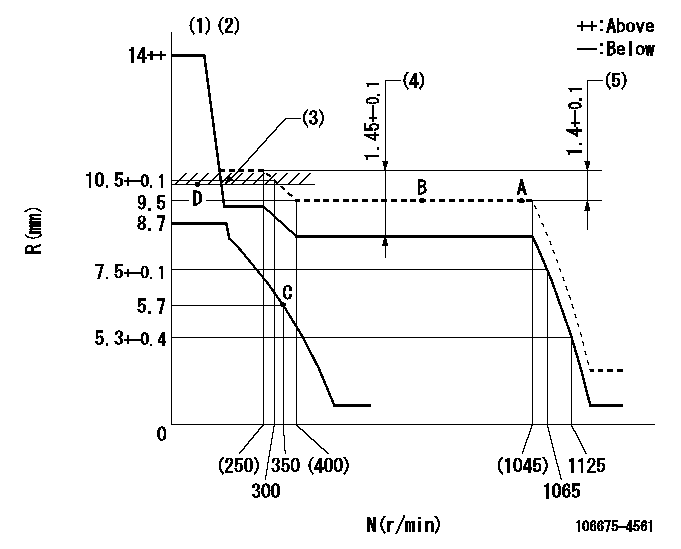
N:Pump speed
R:Rack position (mm)
(1)Target notch: K
(2)Tolerance for racks not indicated: +-0.05mm.
(3)RACK LIMIT
(4)Boost compensator stroke
(5)Rack difference between N = N1 and N = N2
----------
K=8 N1=1025r/min N2=230r/min
----------
----------
K=8 N1=1025r/min N2=230r/min
----------
Speed control lever angle
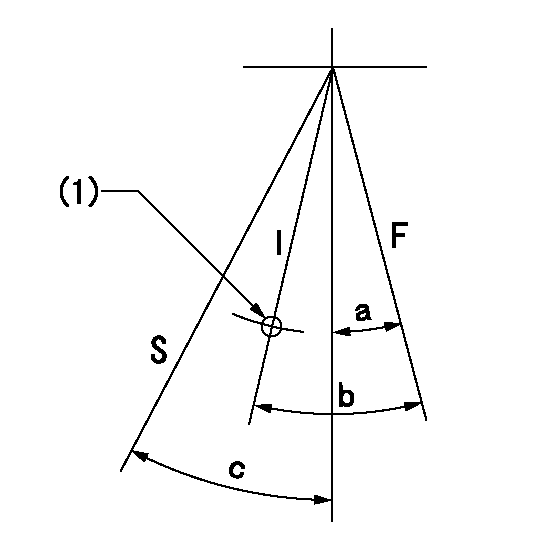
F:Full speed
I:Idle
S:Stop
(1)Use the hole at R = aa
----------
aa=85mm
----------
a=2deg+-5deg b=23deg+-5deg c=35deg+-3deg
----------
aa=85mm
----------
a=2deg+-5deg b=23deg+-5deg c=35deg+-3deg
Timing setting
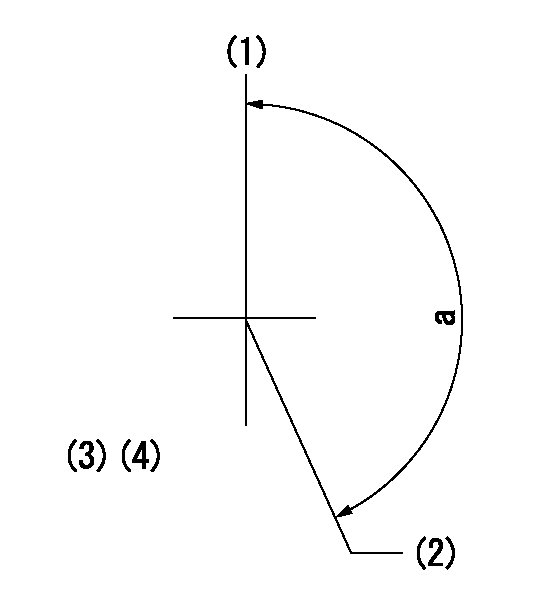
(1)Pump vertical direction
(2)Coupling's key groove position at No 1 cylinder's beginning of injection
(3)-
(4)-
----------
----------
a=(150deg)
----------
----------
a=(150deg)
Information:
Table 4 is an example for using the equation that is in Table 3.
Table 4
Example of the Equation for the Addition of Cat SCA To Water For Maintenance
Total Volume of the Cooling System (V) Multiplication
Factor Amount of Cat SCA that is Required (X)
946 L
(250 US gal) × 0.023 22 L
(6 US gal) Note: Specific engine applications may require maintenance practices to be periodically evaluated to maintain the engine cooling system properly.Cleaning the System of Heavy-Duty Coolant/Antifreeze
Before Cat SCA can be effective, the cooling system must be free from rust, scale, and other deposits. Preventive cleaning helps avoid downtime caused by expensive out-of-service cleaning required for extremelydirty and neglected cooling systems.Cat Cooling System Cleaners
Dissolves or depresses mineral scales, corrosion products, light oil contaminations, and sludges
Cleans the cooling system after used coolant is drained or before the cooling system is filled with new coolant
Cleans the cooling system whenever the coolant is contaminated or whenever the coolant is foaming
The “Standard” version of the Cat Cooling System Cleaners clean the cooling system while still in service.
Reduces downtime and cleaning costs
Helps avoid costly repairs from pitting and other internal problems caused by improper cooling system maintenance
Can be used with glycol-based antifreeze
For the recommended service interval, refer to the Operation and Maintenance Manual, "Maintenance Interval Schedule" for your engine.Cat Standard Cooling System Cleaners are designed to clean the cooling system of harmful scale and corrosion without removing the engine from service. The cleaners, both “Standard” and “Quick Flush” can be used in all Cat engine cooling systems. Consult your Cat dealer for part numbers.Note: These cleaners must not be used in systems that have been neglected or that have heavy scale buildup. These systems require a stronger commercial solvent that is available from local distributors.Prior to performing a cleaning of the cooling system, take a 1-liter (1-quart) sample of coolant from the engine while in operation into a clear container. Take the sample shortly after start-up while the coolant is not yet hot. The coolant should be adequately mixed by the water pump. Allow the sample
Table 4
Example of the Equation for the Addition of Cat SCA To Water For Maintenance
Total Volume of the Cooling System (V) Multiplication
Factor Amount of Cat SCA that is Required (X)
946 L
(250 US gal) × 0.023 22 L
(6 US gal) Note: Specific engine applications may require maintenance practices to be periodically evaluated to maintain the engine cooling system properly.Cleaning the System of Heavy-Duty Coolant/Antifreeze
Before Cat SCA can be effective, the cooling system must be free from rust, scale, and other deposits. Preventive cleaning helps avoid downtime caused by expensive out-of-service cleaning required for extremelydirty and neglected cooling systems.Cat Cooling System Cleaners
Dissolves or depresses mineral scales, corrosion products, light oil contaminations, and sludges
Cleans the cooling system after used coolant is drained or before the cooling system is filled with new coolant
Cleans the cooling system whenever the coolant is contaminated or whenever the coolant is foaming
The “Standard” version of the Cat Cooling System Cleaners clean the cooling system while still in service.
Reduces downtime and cleaning costs
Helps avoid costly repairs from pitting and other internal problems caused by improper cooling system maintenance
Can be used with glycol-based antifreeze
For the recommended service interval, refer to the Operation and Maintenance Manual, "Maintenance Interval Schedule" for your engine.Cat Standard Cooling System Cleaners are designed to clean the cooling system of harmful scale and corrosion without removing the engine from service. The cleaners, both “Standard” and “Quick Flush” can be used in all Cat engine cooling systems. Consult your Cat dealer for part numbers.Note: These cleaners must not be used in systems that have been neglected or that have heavy scale buildup. These systems require a stronger commercial solvent that is available from local distributors.Prior to performing a cleaning of the cooling system, take a 1-liter (1-quart) sample of coolant from the engine while in operation into a clear container. Take the sample shortly after start-up while the coolant is not yet hot. The coolant should be adequately mixed by the water pump. Allow the sample


